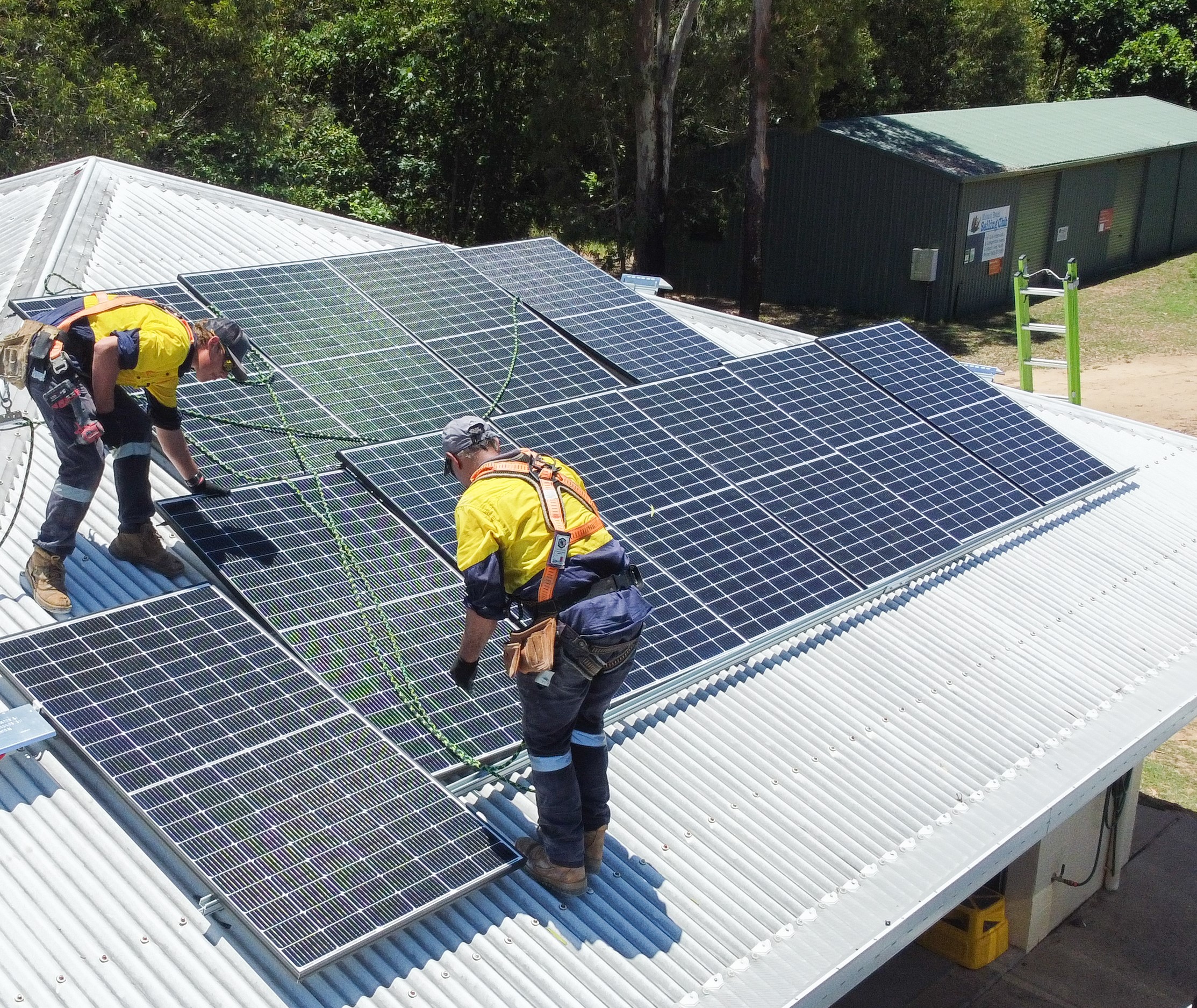Hybrid Solar
A hybrid solar system offers flexibility to your energy solution.

A hybrid solar system combines elements of both grid-tied and off-grid solar systems, offering several advantages that cater to various energy needs. Here are some key advantages of hybrid solar systems:
Energy Independence:
Hybrid systems allow for greater energy independence by incorporating energy storage (batteries). This ensures that surplus energy generated during sunny periods is stored for later use, reducing reliance on the grid during low sunlight or power outages.
Grid Backup:
In a power outage, hybrid systems can seamlessly switch to using stored energy from batteries, providing a reliable backup power source. This backup is especially beneficial for homes or businesses in areas prone to grid interruptions.
Maximised Self-Consumption:
Hybrid systems optimise the self-consumption of solar energy. Excess energy generated during the day is stored in batteries rather than fed back into the grid, allowing homeowners to use more energy they generate and further reduce reliance on grid power.
Time-of-Use Optimization:
Some hybrid system designs take advantage of time-of-use pricing by drawing power from the grid during off-peak hours when electricity rates are lower and storing it for use during peak demand periods when rates are higher.
Environmental Impact:
By reducing reliance on grid power and using stored solar energy, hybrid systems contribute to a lower carbon footprint. They promote sustainable and environmentally friendly energy practices using clean, renewable solar power.
Flexibility and Scalability:
Hybrid systems are versatile and can adapt to different energy needs. They can be easily scaled by adding more solar panels or expanding the battery storage capacity as energy requirements grow, providing flexibility for future changes in consumption patterns.
Financial Incentives:
In many places, there are financial incentives, rebates, or tax credits for adopting solar and energy storage systems. Hybrid systems allow taking advantage of these incentives, further enhancing the economic benefits.
While hybrid solar systems offer numerous advantages, it's essential to consider factors such as system design, sizing, and local regulations to ensure optimal performance and compliance with standards.

